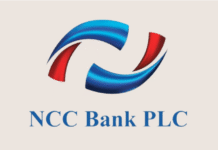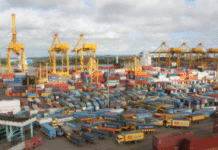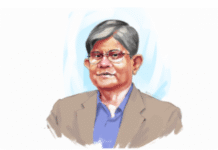Farmers, particularly cattle rearers, suffer from losses for death of animals from natural calamities like flood and cyclone in the absence of insurance coverage, analysts said yesterday.
“The prices of animals have increased significantly. Under the circumstances, the death of a cow causes huge losses to farmers,” said Md Ainul Haque, director general of the Department of Livestock Services (DLS).
Haque’s comments came at a seminar styled ‘cattle economy: problem and prospects’, organised by the Bangladesh Agricultural Journalists and Activists Federation at the Press Institute of Bangladesh.
The comment has become all the pertinent as the ongoing flood has wiped off livestock and damaged crops.
The DLS estimated that flood affected 1,234 farms and caused deaths of nearly 50,000 livestock, including poultry and cattle, in 113 upazilas, particularly up north.

Haque said the government has decided in principle to introduce an insurance scheme for livestock under a World Bank-financed project.
“We are yet to fix the modalities but we want to introduce insurance benefits from July next year,” he said.
At the seminar, analysts said the potential for dairy development remains untapped in the absence of proper policy support and a lack of initiative from the policymakers.
They suggested expediting the formation of a ‘dairy development board’, coming up with marketing facilities for milk, ensuring fair prices and extending credit and support.
“One of the major constraints is marketing,” Haque said.
In the absence of adequate marketing facilities, farmers in rural areas do not get fair prices for the milk.
“Out of frustration about the low prices, farmers throw away milk on the street.”
Producers have to sell a litre of fresh milk at Tk 30 whereas the same is sold at Tk 80 in Dhaka, according to Haque.
Discussants said dairy farming has increased in recent years leading to a spike in the production of milk and meat.
Yet, the country has to import milk and depend on smuggled cattle to meet a part of the demand for beef.
Farmers’ representatives at the event urged the government to discourage the entry of cattle from India and the import of powdered milk with a view to promoting domestic farming.
“The demand for milk and meat is rising because of an increase in income and population,” said Jahangir Alam, an agricultural economist.
Subsequently, he suggested low-cost credit schemes to promote cattle farming, expansion of artificial insemination and higher public and private investment in the livestock sector.
The government should also provide reinsurance coverage to facilitate insurance in the sector, said Alam, also a former director general of the Bangladesh Livestock Research Institute.
FH Ansarey, managing director and chief executive of ACI Agribusiness, said the government should frame clear and consistent policies to encourage private sector investment in dairy and beef production.
The annual market size for beef is about Tk 15,000 crore and the sector needs Tk 10,000-12,000 crore of investment, he said.
Md Anwarul Haque Beg, treasurer of Sher-e-Bangla Agricultural University, said he heard about the formation of the ‘dairy development board’ in the 1980s.
“But it is yet to be established,” he said, adding that neighbouring India has formed such a board 40 years ago.
Beg also recommended bringing the 50 lakh small farmers under registration for providing extension and other support such as credit.
Big investors will come forward if the influx of cattle from India is stopped, said Mohammad Imran Hossain, president of the Bangladesh Dairy Farmers Association.
“Beef will be produced on an industrial scale and the prices will come down.”
He also demanded the government charge the dairy farmers the same rates as the agriculture sector for electricity.
At present, dairy farmers have to pay commercial rate on their electricity usage although dairy and livestock farming falls under agriculture. As a result, the cost of production goes up.
Source: The Daily Star









